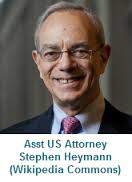by Henry Makow Ph.D.
A reader, Mary Lynn, tipped me to a documentary The Internet’s Own Boy, (2014) written and directed by Brian Knappenberger, and released last summer, 17 months after Aaron’s suicide Jan 11, 2013.
For some mysterious reason, this wonderful two-hour documentary did not get the media hype or word of mouth it deserved, and bombed in theatrical release. It is now available for free on YouTube which perhaps is appropriate given Aaron’s work and its Kickstarter funding.
Aaron’s suicide at the age of 26 was a tragic mistake. Many people believe he was murdered but that is true only in an indirect sense. The film makes it clear that he was a highly-strung young genius who was depressed by criminal charges against him.
Swartz easily could have turned his trial into a cause celebre and used it to advance the cause. He had already helped engineer an unprecedented nation-wide outcry that stopped a bill restricting Internet freedom. He could easily have done the same for himself. His Internet freedom lobby, Demand Progress.org, had 1.5 million members. His supporters were Obama voters, and ultimately, the President would have had to intervene with the Dept. of Justice.
Swartz got mired in a legal morass. He was spending millions on his legal defence. He should have dismissed his lawyers and stood on principle.
The principle was freedom of information. He had committed an act of civil disobedience. He believed that knowledge funded by the public should not be sold for profit by private corporations. He had downloaded millions of scholarly publications from the JSTOR archives at MIT, which he had intended to release for free.
 He was charged with computer crime punishable by 30 years in prison and a million dollar fine. The government, led by prosecutor Stephen Heymann, wanted to make an example of him as a deterrent. This was a time when Wikileaks and Bradley Manning were in the news. Information had to be protected.
He was charged with computer crime punishable by 30 years in prison and a million dollar fine. The government, led by prosecutor Stephen Heymann, wanted to make an example of him as a deterrent. This was a time when Wikileaks and Bradley Manning were in the news. Information had to be protected.
Swartz had thrown down the gauntlet in his “Guerrilla Open Access Manifesto.” Information is power. Mankind’s scholarly knowledge should not be controlled by private corporations for profit. “There is no justice in following unjust laws. It’s time to come into the light and, in the grand tradition of civil disobedience, declare our opposition to this private theft of public culture.”
The documentary was made with the cooperation of the Swartz family and includes interviews with his parents, brothers, girlfriends and colleagues. Perhaps the most heartwarming aspect of the film are the home movies of Aaron as a child and teenage prodigy. When Internet experts demanded to know why this brilliant forum interlocutor didn’t show up at events, Aaron had to confess his mother wouldn’t let him. He was only 14!
The documentary is also notable as a portrait of true Jewish idealism, the genuine desire to make the world a better place that has been perverted and exploited by the Illuminati bankers. It’s ironic that people so smart and decent also can be so easily duped (i.e. Communism, liberalism, feminism, homosexuality.)
And that also applies to Aaron’s fate. He had demonstrated the power of the Internet to rouse millions of people to a political cause. Yet he failed to use this power to save himself.
FIRST COMMENT – MARY LYNN’S REVIEW:
Source Article from http://henrymakow.com/2015/01/Internet-Martyr-Aaron-Swartz.html
Internet Martyr Aaron Swartz is Immortalized in Film
No comments:
Post a Comment